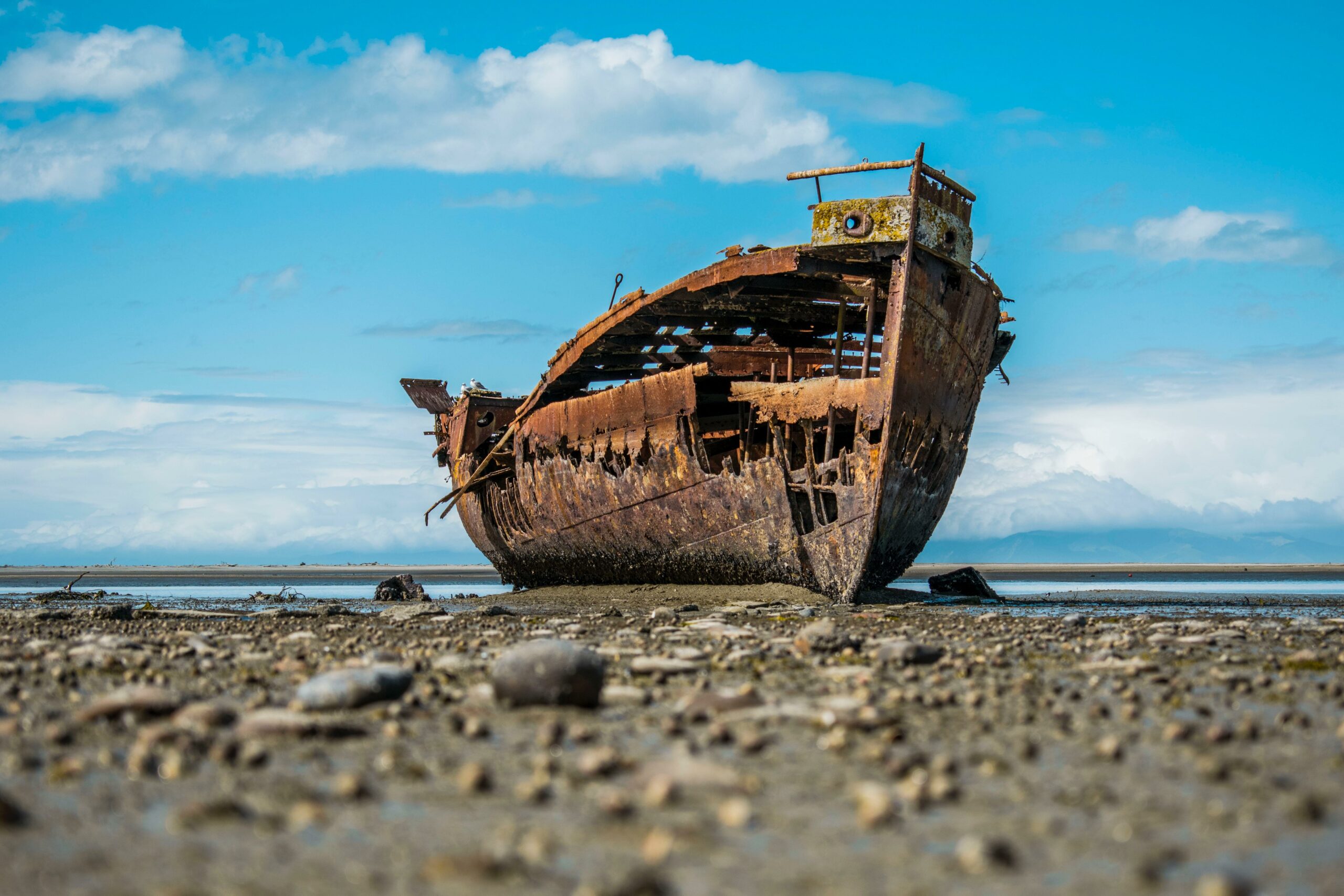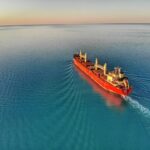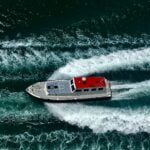Are you fascinated by the vast ocean and the majestic ships that navigate through its depths? If you are, then you’ve come to the right place. Welcome to a remarkable journey through the diverse world of ships. In this article, we will delve into the captivating realm of various vessel types, exploring their intricacies, purpose, and sheer magnificence. From cargo vessels that carry goods across continents to colossal cruise ships that redefine luxury, and from formidable warships that safeguard our waters to specialized marvels like icebreakers and oil tankers, we will unravel the secrets behind these incredible feats of engineering. So, tighten your sea legs, and let’s embark on an unforgettable voyage to explore the fascinating world of ships.

Types Of Ships
Ships have been an integral part of human civilization since ancient times. They have served various purposes, from transporting goods to facilitating travel and exploration. The world of ships is incredibly diverse, with different types of vessels designed for specific tasks. In this article, we will explore the fascinating world of ships and delve into the various types that exist today.
Container Ships
Let’s start by exploring container ships. These behemoths of the sea are designed to carry large quantities of cargo in standardized containers. They have revolutionized the world of shipping by making the transportation of goods more efficient and streamlined. With their towering stacks of containers, container ships play a crucial role in global trade.
Container ships are like floating warehouses, capable of carrying a vast range of goods, from electronics to clothing and everything in between. Their design allows for easy loading and unloading of containers using specialized cranes at ports. This agility and flexibility make container ships a vital part of the modern shipping industry.
Key Point: Container ships are the lifeline of global trade, transporting goods in standardized containers with remarkable efficiency.
Tanker Ships
Next, let’s dive into the world of tanker ships. These specialized vessels are built to transport massive quantities of liquid cargo, such as oil, gas, and chemicals. Tanker ships are a vital link in the global energy supply chain, facilitating the movement of valuable resources across vast oceans.
Tanker ships come in various sizes, from small coastal tankers to massive supertankers that can carry millions of barrels of oil. Their design focuses on safety and efficiency, with robust storage tanks and advanced navigation systems. Tanker ships play a significant role in the oil and gas industry, ensuring the smooth flow of energy resources around the world.
Key Point: Tanker ships are purpose-built vessels that transport liquid cargo, such as oil and gas, across the seas, enabling the global energy trade.
Passenger Ships
Moving on, let’s explore the enchanting world of passenger ships. These majestic vessels are designed to transport passengers in comfort and style. Whether it’s a short ferry ride or a luxurious cruise, passenger ships offer a unique travel experience on the open seas.
Passenger ships can be further classified into two main categories: ferries and cruise ships. Ferries provide essential transportation services, connecting islands, coastal regions, and even countries. Cruise ships, on the other hand, offer a leisurely experience with onboard amenities, entertainment, and the opportunity to explore various destinations.
Key Point: Passenger ships cater to the travel and leisure needs of individuals, providing both practical transportation solutions and unforgettable vacation experiences.
Naval Ships
Let’s now shift our focus to the realm of naval ships. These vessels are designed for military or defense purposes, with advanced technologies and formidable capabilities. Naval ships, including aircraft carriers, destroyers, and submarines, play a crucial role in safeguarding maritime interests and ensuring national security.
These mighty warships are equipped with a wide array of weapons systems, advanced communication systems, and state-of-the-art radar and sonar technologies. Their design emphasizes speed, stealth, and firepower, providing nations with the ability to project force and protect their interests at sea.
Key Point: Naval ships are the guardians of the seas, providing nations with the means to protect their maritime interests and maintain national security.
Offshore Ships
Moving onto the realm of offshore ships, these specialized vessels are used for a variety of offshore operations related to oil exploration, construction, and maintenance. They enable the extraction of oil and gas from offshore fields and provide crucial support services for various offshore activities.
Offshore ships can include offshore supply vessels, which transport equipment, supplies, and personnel to offshore platforms, and offshore construction vessels, equipped with heavy-lifting cranes for constructing and maintaining offshore structures. These ships play a vital role in the oil and gas industry, enabling exploration and production in challenging offshore environments.
Key Point: Offshore ships facilitate offshore operations, supporting oil exploration, construction, and maintenance activities in challenging offshore environments.
Special Purpose Ships
Finally, we come to the world of special purpose ships. These vessels are designed for unique tasks and specialized industries. The category of special purpose ships includes icebreakers, which are specifically built to navigate through ice-covered waters and ensure the safe passage of other vessels.
Other types of special purpose ships include research vessels, which facilitate scientific exploration of the oceans, and dredgers, which are used for deepening and maintaining waterways and ports. These ships cater to specific industries and niche requirements, contributing to the development of various sectors.
Key Point: Special purpose ships are built for specific tasks and industries, such as navigating through icy waters, conducting scientific research, and maintaining waterways.
In conclusion, the world of ships is incredibly diverse, with each vessel designed for a specific purpose. From container ships revolutionizing global trade to tanker ships ensuring the smooth flow of energy resources, each type of ship plays a vital role in different industries. Whether it’s the enchanting experience of passenger ships or the military might of naval ships, these vessels shape our world and connect us across vast oceans.
Intrigued by the diverse world of ships? Dive deeper into these fascinating vessels through articles, videos, and encyclopedias, where you can explore their design, construction, and operational aspects.
So, the next time you see a ship sailing on the horizon, take a moment to appreciate the incredible feats of engineering and human ingenuity that go into creating these floating marvels.
Key Point: Ships come in various types, each serving a unique purpose and playing a significant role in transportation, trade, and industry. Understanding these different vessel types is essential to comprehend their importance in connecting the world and enabling various aspects of human civilization.
Ships have always fascinated humankind with their immense size, breathtaking designs, and incredible abilities to conquer the vast oceans. If you’re someone who is intrigued by these floating giants and wants to learn more about them, we’ve got you covered. Click here to uncover some fascinating facts about ships and explore the wonders of the maritime world: facts about ships. Get ready to dive into a world filled with awe-inspiring tales of maritime adventures and technological marvels!
Types Of Ships are vast and diverse, catering to different interests and needs. From cargo vessels to passenger ships, the maritime world offers an array of options that are both fascinating and intriguing. Whether you’re interested in exploring different types of ships, various kinds of ships, or diverse categories of ships, there’s an abundance of information to discover. Dive into the world of marine transport, where you’ll find a wealth of knowledge on different ship types at our informative website. Click here to explore the intricacies of different types of ships: Different types of ships or discover the variety of ships available at Various kinds of ships or even explore the diverse categories at Diverse categories of ships. Embark on a journey of discovery and satisfy your curiosity about the fascinating world of ships.
Types of Ships and Boats: A Comprehensive Vocabulary List
[youtube v=”jeIHkeLU7mY”]
In this article, we will explore the fascinating world of ships and boats, delving into the different types and their names in English. Whether they sail oceans, traverse canals, or navigate rivers, these vessels play a vital role in transportation, trade, and industry, connecting the world and enabling various aspects of human civilization.
Understanding the Distinction: Ship vs. Boat
Before we embark on our journey, let’s clarify the difference between a ship and a boat. While these terms are often mistakenly used interchangeably, there is a fundamental distinction. A ship is a large vessel designed for ocean travel or deep water transport. On the other hand, a boat encompasses all other types of floating vessels. It is important to note that while a ship can carry a boat, the reverse is not true—a boat cannot carry a ship.
Exploring Different Types of Ships and Boats
1. Aircraft Carrier
One of the largest and most well-known types of ships is the aircraft carrier. Also referred to as a military vessel, it serves as a mobile airfield capable of carrying, deploying, and recovering military aircraft.
“Aircraft carriers, often considered “floating cities,” play a vital role in projecting military power across the oceans.”
2. Oil Tanker
Oil tankers are specifically designed to transport enormous quantities of liquid cargo, such as oil and gas, across the globe. These vessels are crucial for facilitating the global energy supply chain.
“The efficient transportation of oil and gas is made possible by specialized vessels known as oil tankers.”
3. Container Ship
Container ships revolutionized the world of shipping by introducing standardized containers for transporting cargo. These large metal boxes, known as containers, are loaded onto container ships, enabling seamless trade and transportation of goods across the seas.
“Container ships, with their ability to carry massive amounts of cargo in standardized containers, have transformed the shipping industry.”
4. Cruise Ship
For those seeking a leisurely voyage at sea, cruise ships offer a luxurious floating hotel experience. Equipped with amenities like cabins, swimming pools, casinos, and restaurants, these ships provide passengers with an unforgettable vacation on the water.
“Embark on a journey of luxury and relaxation aboard a cruise ship—an opulent floating paradise with endless entertainment options.”
5. Ferry
Ferries are vessels designed for transporting both passengers and vehicles across bodies of water. Whether found on rivers or at beach resorts, these ships offer a convenient means of transportation.
“Hop aboard a ferry and experience the joy of sailing through scenic waterways, with the added convenience of bringing your vehicle along.”
6. Gondola
A symbol of Venice, Italy, the gondola is a unique type of boat used for transportation along the city’s picturesque canals. These elegant, flat-bottomed vessels are propelled by a gondolier using a single oar.
“Explore the enchanting canals of Venice in a traditional gondola—a quintessential experience in this romantic Italian city.”
7. Rowing Boat
Rowing boats, as the name suggests, are propelled by rowers using oars. These small boats offer a serene and manual means of navigating calm waters.
“Embrace the tranquility of the water as you row your way through peaceful lakes and rivers aboard a traditional rowing boat.”
8. Canoe
Similar to rowing boats, canoes are narrow, lightweight vessels meant for paddling through calm waters. They are ideal for leisurely exploration and gentle river journeys.
“Embark on a serene adventure and discover the beauty of nature as you paddle through tranquil waterways in a classic canoe.”
9. Raft
A simple and rudimentary form of boat, rafts are typically constructed using wooden logs tied together. These basic vessels offer a primitive yet effective means of traversing calm waters.
“Experience the thrill of floating down gentle rivers on a makeshift raft—a primitive vessel that connects you with nature.”
10. Lifeboat
Lifeboats serve a crucial role in sea rescue missions. They are specifically designed to ensure the safety of people on board large ships in emergency situations. In addition, some ships carry smaller lifeboats for added safety measures.
“Lifeboats are the unsung heroes in times of maritime emergencies, providing a lifeline to those in need.”
Expanding Your Vocabulary: More Ships and Boats Await
While we have covered an array of ship and boat types in this article, there are still many more to explore. These vessels encompass various industries, purposes, and tasks, each serving a unique role in our interconnected world. As we continue to discover the rich vocabulary associated with ships and boats, we invite you to share any important ones we might have missed in the comments below. Your suggestions will help shape a future video, delving even deeper into this captivating subject.
Remember, there is an entire world of vocabulary waiting to be explored. So, head over to the Learning English Pro YouTube channel, where you can find a multitude of engaging English lessons covering diverse topics. Don’t forget to subscribe and share the channel with your friends, ensuring that everyone has the opportunity to learn English like a pro.
FAQ
Q: What are the different types of ships?
A: Ships are classified into various types, including container ships, bulk carriers, tanker ships, passenger ships, naval ships, offshore ships, and special purpose ships. Container ships are designed to carry large quantities of cargo in containers, while tanker ships are specialized vessels for transporting liquid cargo. Passenger ships are used for transporting passengers and can be further categorized into ferries and cruise ships. Naval ships are designed for military purposes, and offshore ships are utilized in oil exploration and construction jobs at sea. There are also special purpose ships, such as icebreakers and oil tankers, as well as service vessels, miscellaneous ships, and industrial ships.
Q: What is the purpose of container ships?
A: Container ships are specifically designed to hold a significant amount of cargo in containers. These ships play a crucial role in global trade, as containers can be easily loaded, unloaded, and transferred between different modes of transport. The standardized container sizes and designs enable efficient and secure transportation of goods across the world.
Q: How do tanker ships differ from other types of vessels?
A: Tanker ships are specialized vessels used for transporting liquid cargo, such as crude oil, petroleum products, chemicals, and liquefied natural gas. They have specially designed storage tanks and pumping systems to ensure proper containment and safe transportation of the liquid cargo. Unlike other ships, tanker ships are constructed to handle the unique challenges associated with transporting bulk liquids.
Q: What are offshore ships used for?
A: Offshore ships are primarily utilized in oil exploration and construction activities at sea. These vessels support offshore drilling operations, provide accommodation for personnel, transport equipment and supplies, and perform various other tasks required for offshore activities. Offshore ships play a critical role in the offshore oil and gas industry.
Q: What distinguishes passenger ships from other types of vessels?
A: Passenger ships are specifically designed for transporting passengers. They can be further classified into ferries and cruise ships. Ferries are primarily used for short-distance transportation between ports, while cruise ships offer luxurious and leisure-based travel experiences. Passenger ships prioritize passenger comfort and safety, with amenities such as cabins, dining areas, entertainment facilities, and medical facilities on board.
- China II Review: Delicious Food & Speedy Service - April 17, 2025
- Understand Virginia’s Flag: History & Debate - April 17, 2025
- Explore Long Island’s Map: Unique Regions & Insights - April 17, 2025
















